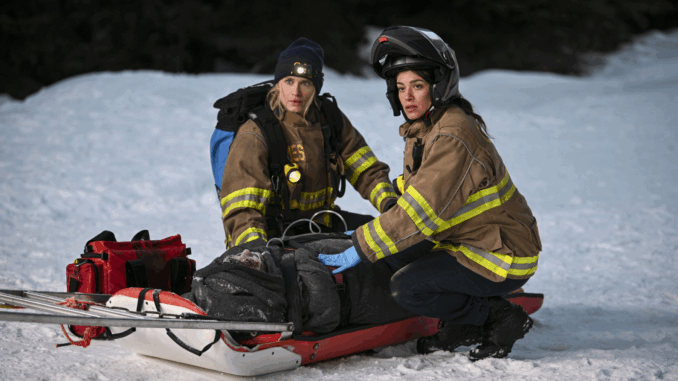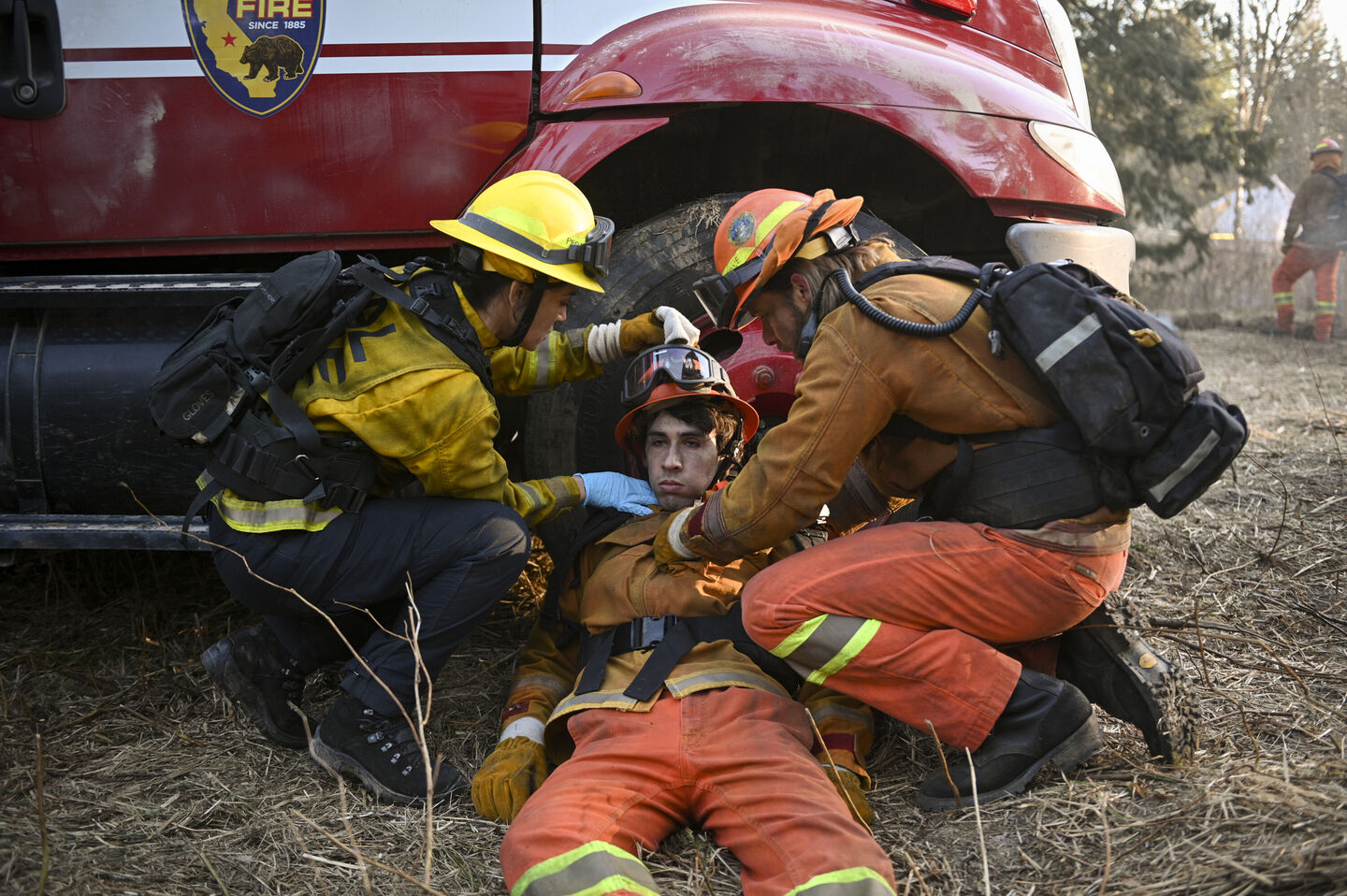
Introduction: Women at the Heart of the Fire
Firefighting has long been portrayed as a man’s world—physically demanding, emotionally restrained, and traditionally male-dominated. But Fire Country flips that script. It doesn’t just include women in firefighting—it centers them. The show presents female leaders, warriors, caregivers, and rebels, all with rich emotional arcs and undeniable authority.
Through characters like Sharon Leone, Eve Edwards, and various female inmate firefighters, Fire Country not only provides representation but challenges systemic biases within the firefighting world. It shows that courage is not gendered, leadership isn’t one-size-fits-all, and emotional resilience can be just as vital as physical strength.
This article explores how Fire Country elevates female voices, portrays complex women in positions of power, and normalizes a diverse future in fire service.
Sharon Leone: Commanding with Compassion
As Division Chief and later Fire Chief, Sharon Leone is one of the most compelling female leaders on TV—not because she mimics male leadership tropes, but because she redefines them. Her strength lies in empathy, strategic intelligence, and the ability to lead without dehumanizing.
Sharon is:
-
A decisive commander who makes hard calls under pressure.
-
A nurturing mentor who sees potential in people others have written off.
-
A mother, whose personal life is deeply entangled in her professional world, yet never undermines her authority.
What makes Sharon revolutionary isn’t just her title—it’s how she holds it. She isn’t portrayed as an exception or novelty. She’s the backbone of Cal Fire, respected across gender lines.
Her battle with kidney disease adds another layer of complexity. Even as her body weakens, her leadership never does. Fire Country doesn’t diminish her—it shows that vulnerability and strength can coexist, especially in women.
Eve Edwards: Loyalty, Grit, and Identity

Eve Edwards is the heart of the field team. Quick on her feet, level-headed under pressure, and always ready to dive into danger, she’s not defined by her gender—but she does carry the weight of being a woman in a male-heavy environment.
Her character arc gives us:
-
Moments of quiet leadership—when she steps up, not to dominate, but to stabilize.
-
Tactical brilliance—she earns her spot not through favoritism but sheer performance.
-
Emotional integrity—she’s loyal to a fault, often the glue holding the crew together during conflict.
Eve’s queerness is also handled with grace and authenticity. She’s never reduced to her sexuality, but it’s never hidden either. This balance is rare and essential—it portrays LGBTQ+ representation without tokenism.
In many ways, Eve represents the future of fire service: competent, emotionally intelligent, intersectional, and unapologetically herself.
Beyond Tokenism: Women at Every Level
Fire Country doesn’t just give us one or two “exceptional women”—it shows female firefighters at various ranks and in various roles:
-
Inmate firefighters working toward redemption
-
Station-level women fighting alongside men
-
Administrative leaders managing logistics and strategy
This normalization of women in firefighting matters. Too often, shows depict female firefighters as “trailblazers” facing constant resistance. Fire Country acknowledges that sexism exists, but it doesn’t dwell on it—it prioritizes competence over drama.
By showing women working, leading, and supporting each other, the show creates a believable, aspirational vision of gender equity in emergency services.
Feminine Leadership: A New Archetype
In traditional firefighting dramas, leadership often follows the “alpha male” archetype—tough, emotionally distant, and militaristic. Fire Country offers something radical: feminine leadership without apology.
Sharon and Eve lead differently:
-
They listen more than they speak.
-
They collaborate rather than command unilaterally.
-
They model vulnerability, which fosters psychological safety in high-risk scenarios.
This doesn’t mean they’re soft. It means they understand that true leadership is relational, not just hierarchical. They show that compassion can be as powerful as command—and that nurturing a team is not weakness, but wisdom.
Real-World Parallels: Firefighting Needs Women
The show’s depiction of female firefighters reflects a real-world need. According to recent statistics:
-
Less than 10% of firefighters in the U.S. are women.
-
Women face higher rates of harassment and burnout in fire service.
-
Departments with more female leadership often have stronger cohesion and better conflict resolution.
By spotlighting characters like Sharon and Eve, Fire Country doesn’t just entertain—it models the cultural shift that real departments should aim for. It shows what happens when women are not just included, but empowered.
Sisterhood in the Fireline: Female Solidarity
One of the subtler but beautiful aspects of the show is how women support women in the firefighting environment:
-
Sharon mentoring younger women.
-
Eve having the backs of female inmates during crises.
-
Female firefighters quietly acknowledging each other’s pain and pride.
This solidarity is not competitive. It’s not framed through jealousy or rivalry. It’s rooted in shared experience and mutual respect—a rare and powerful portrayal in television.
Conclusion: Fire Doesn’t Care If You’re a Woman—But Leadership Should
Fire Country redefines what leadership looks like in high-risk spaces. By showing women who lead with heart, heal while commanding, and carry others while carrying trauma, it opens the door for broader representation—not just in storytelling, but in society.
The show doesn’t just say women belong in fire service—it shows what happens when they lead, thrive, and transform it.
Because in a fire, the flames don’t care about your gender. But those who fight it—and those who watch—should.
